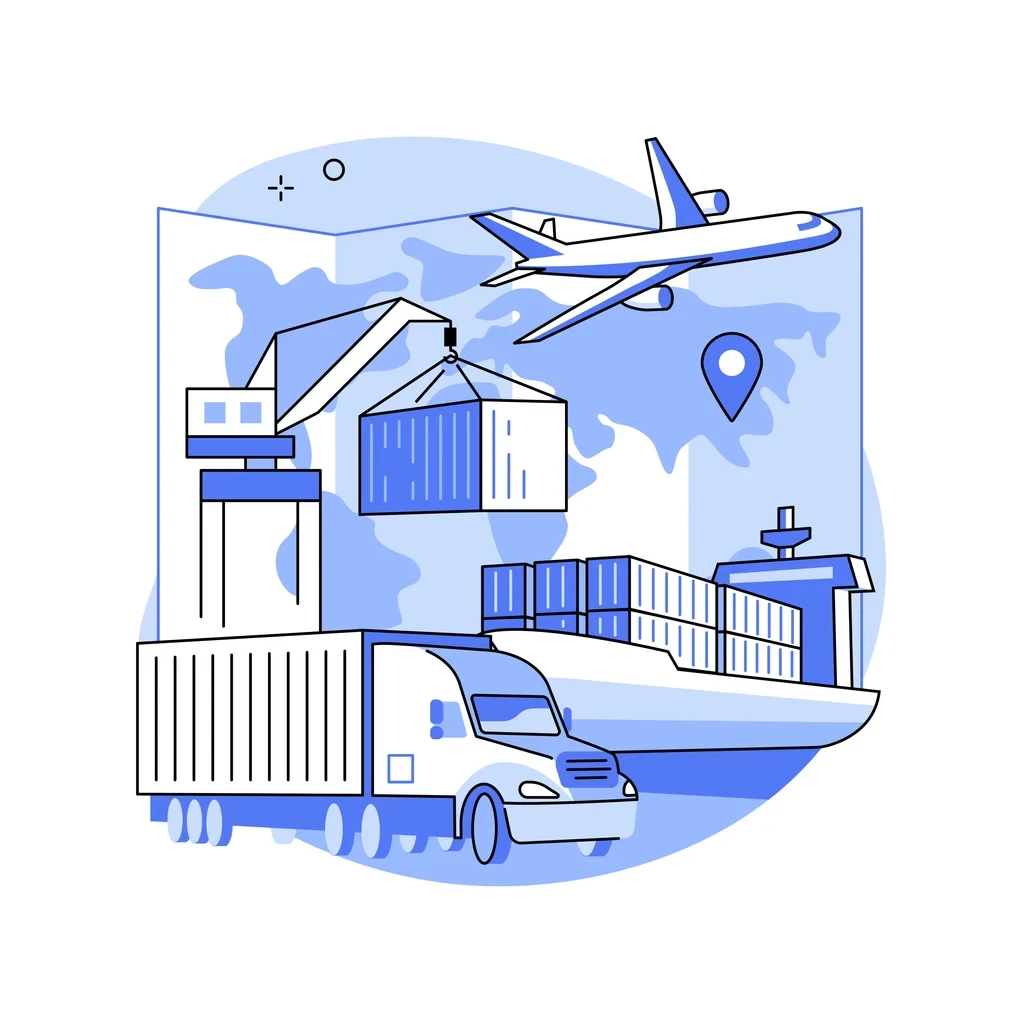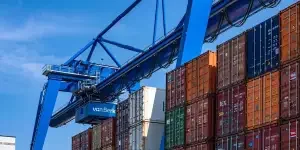Getting around the complex norms and regulations controlling the import and export of goods may be difficult, particularly in the realm of international trade and in countries like the United States with stringent and constantly evolving import and export rules, which may give rise to considerable challenges for importers and exporters. Imagine having someone act as an intermediary between your business, which is involved in importing and exporting goods, and the multiple government agencies responsible for facilitating international trade, ensuring that your imports and exports are conducted legally and efficiently.
Fortunately, there is a profession that is well-suited to handle these functions and can provide valuable assistance in navigating the complex landscape of customs rules and regulations – Customs brokers. But what do they actually do, and how do they do it? Read on to discover the diverse roles and responsibilities of customs brokers, their essential licensing and qualification requirements, and learn how to select the ideal customs broker for various businesses’ import and export needs. Gain valuable insights and tips for effectively working with them to streamline the international trade experience.
Table of Contents
Roles and responsibilities of customs brokers
Licensing and qualifications
Selecting the ideal customs broker for your business
Tips for working with customs brokers
Bridging the global trade horizon
Roles and responsibilities of customs brokers
Communication and consultation services
In essence, the main role of customs brokers is to support importers in adhering to the federal regulations governing imports into the United States. In other words, this role entails extensive communication to ensure adherence to the necessary requirements. In reality, customs brokers act as a crucial communication channel between clients and the government agencies that oversee the import and export of goods. For example, in the course of customs clearance procedures, customs brokers act on behalf of their clients, who assume the role of “Importer of Record”, to effect any customs affairs. Clients are informed about import procedures, rules, costs, and restrictions. Meanwhile, they may also negotiate with relevant governmental agencies to settle customs disputes including customs penalties.
In addition to the Customs authority (US Customs and Border Protection, or CBP), customs brokers are also responsible for supporting the IOR in complying with import requirements by other government agencies. Suppose a customs broker is handling the import of a shipment of consumer electronics, such as laptops, from China to the United States. They would need to identify and help the importer meet applicable requirements established by the Environmental Protection Agency (EPA) to ensure compliance if the laptops contain certain electronic components or batteries.
The brokers also provide expert advice and consultation services on issues pertaining to international trade, assisting companies to exercise reasonable care and reach appropriate decisions. At the same time, they keep updated on the latest changes in international trade laws and regulations that may affect their client’s business.
Classification, valuation, and customs compliance
Customs brokers work with the importer to determine the correct tariff classification of goods primarily based on the Harmonized System (HS) Code. Additionally, according to the goods’ value, country of origin, and FTA eligibility, they calculate applicable duties and other import related taxes. In terms of customs compliance, customs brokers are responsible for preparing and submitting all documents required for customs clearance, including commercial invoices, bills of lading, and if applicable, certificates of origin, permits, and licenses, in an accurate, thorough, and timely manner. Customs brokers ensure that the goods meet all the import laws and regulations, including any packing, labeling, and marking rules, as well as safety, health, environmental, and other requirements by law. They also advise and work with clients closely to avoid delays, penalties, seizures, or confiscations of goods.
In a scenario where a customs broker is handling a shipment of Chinese tea, for example, the broker would classify the tea using the HS system, determine its customs value, while putting together the customs entry form with the proper tariff rates, origin and other information. The broker would also make sure that the tea complies with the destination nation’s labeling and food safety laws. To make sure the tea complies with all relevant import requirements and is not outlawed owing to potential health dangers, they could also communicate with the Food and Drug Administration (FDA) or other government agencies.
Financial duties and tasks
On behalf of their clients, customs brokers calculate and pay all necessary duties and taxes. They are also in charge of keeping track of payments and providing clients with receipts. They oversee the entire customs clearance process for the cargo in order to have the goods released and cleared by the Customs authorities. Furthermore, they collaborate, as necessary, with other parties in the supply chain, including port and terminal operators, freight forwarders, carriers and agents, warehouse managers, and transporters.
A clear example showcasing the financial responsibilities of customs brokers, as discussed earlier, is when they accurately calculate and facilitate the payment of duties and taxes for a shipment of electronics. This process is typically carried out using online payment systems or by utilizing a customs bond.
Cargo management
Customs brokers can assist their clients with cargo tracking and handling insurance claims to make sure that goods are accounted for and that any losses or damages are taken care of. The more logistical facets of the duties of a customs broker are covered under this role.
For instance, a customs broker may use a tracking system or a bill of lading to monitor the status and location of a shipment. Any claims for losses or damages that could happen during the transit may also be handled by the customs broker, as they may submit claim forms to the insurance providers or present related supporting documentation.
Licensing and qualifications
- Customs broker licensing process: To become a customs broker in the United States, a series of steps must be complied with in order to obtain a customs broker license. First of all, one must pass the Customs Broker License Examination (CBLE). A wide range of subjects, including entry protocols, customs regulations, classification, and valuation are covered by the exam. Next, one must apply for the license within three years of passing the exam, along with the necessary fees. And finally, the application must be approved by the CBP.
- Qualification requirements: To be eligible for the CBLE, the candidate must be a U.S. citizen, with a minimum age requirement of 21 years old, and not currently employed by the federal government. The candidate must also possess good moral character. Nevertheless, it’s important to know that aside from these hard and fast qualification rules set by the authority, what really qualifies U.S. Customs brokers in terms of skill sets include a variety of practical skills and knowledge at navigating the complexities of customs procedures. They should have a thorough awareness of customs regulations, tariff schedules, import and export restrictions, as well as the particular documents needed for international trade. With these expertise areas and an in-depth understanding of the import-export landscape, a truly qualified customs broker should be able to successfully represent the interests of importers and manage complex customs affairs to ensure smooth transactions and compliance with all requirements.
Selecting the ideal customs broker for your business
- Seeking Referrals and Testimonials: One of the best methods to identify a trustworthy and respectable customs broker is to seek recommendations from peer businesses in the same field and refer to testimonials from reliable sources. On top of that, checking out internet testimonials and rankings from independent reviewing websites can provide valuable insights into the broker’s standing, competence, and client satisfaction levels too.
- Comparing Pricing and Offered Services: One should take into account the prices and services offered while selecting a customs broker. Brokers’ prices may differ greatly with some imposing flat fees, while others base their charges on the total quantity of goods. Examining this pricing factor from various perspectives on top of the standard fees but also other charges, commissions, discounts, and payment terms. The goal is to verify that they are in line with one’s needs and budget.
The type of expertise and services the brokers are familiar with are also essential points to be pondered upon. For instance, brokers with industry-specific experience may be able to handle customs processes more effectively. Reviewing the broker’s suite of services, including classification, valuation, documentation, clearance, and expert advice, is also crucial to enjoy a comprehensive service. The ultimate objective is to select a customs broker that provides complete services at affordable rates, satisfying specific demands and expectations.
- Confirming Licenses and Industry Expertise: A trustworthy customs broker should hold a valid CBP license and exhibit knowledge of the sector in which one’s business operates. A crucial step is to verify a broker’s license over the CBP website. It is essential to assess a customs broker’s licenses, credentials, qualifications, certifications, organizations, affiliations, and honors.
A broker with in-depth expertise and experience in one’s industrial sector and product category can be really helpful to the client, while it is also essential to ensure their familiarity with the laws and regulations of the shipment’s origin and destination countries.
- Assessing Communication and Responsiveness: Look for a broker who responds promptly to inquiries, keeps clients updated on the progress of shipments, and offers guidance on regulatory changes. It’s crucial to evaluate a potential broker’s communication abilities and attentiveness. They should also provide timely and effective replies to questions, complaints, or feedback.
Along with a professional demeanor that builds rapport and trust, a proactive and adaptable approach to problem-solving is preferred. In conclusion, it’s important to choose a customs broker based on their communication and response. Seek out someone who is proactive in solving issues as these traits contribute to a successful and reliable customs brokerage experience.
- Evaluating Technology and Automation Capabilities: The efficiency of the import/export process is greatly impacted by technology, just as it has an influence on many other parts of international trade and shipping. Look for brokers who leverage advanced technology, such as cloud-based platforms and automated systems, to reduce human error and streamline operations. They may offer real-time tracking, reporting, and secure electronic systems for seamless exchange. Give priority to customs brokers that provide reliable electronic systems for entry filing and document exchange, user-friendly online platforms for account management and shipment tracking, and updated databases of customs laws and regulations.
Furthermore, brokers with sophisticated software for tasks like classification, duty calculation, logistics optimization, and risk identification are certainly helpful. Also give preference to customs brokers that have effective processes in place for ensuring compliance, detecting errors, preventing fraud, and resolving disputes. Basically, customs brokers who embrace advanced technology hold the key to a streamlined import/export process.
Tips for working with customs brokers
Understanding business and compliance needs
Before engaging a customs broker, it is crucial for businesses to understand their specific needs and compliance requirements. This implies having a comprehensive understanding of the nature of goods being traded, projected volumes, frequencies, and any particular challenges or requirements unique to their business or product category. For instance, business owners who are looking to import smartphones from China not only need to understand the type of goods they are importing but also the distinctive attributes associated with the country of origin. All this knowledge facilitates the selection of a customs broker who can meet expectations and provide tailored solutions.
Consider crucial aspects including identifying the Harmonized System (HS) codes for items, comprehending the appropriate tariffs, taxes, and fees, and gaining an understanding of essential trade agreements or preferential programs. Recognizing the product’s transportation and logistics alternatives, as well as any legal needs or restrictions can be really helpful too.
Developing and maintaining a strong relationship with customs brokers
The key to establishing and preserving a strong relationship with customs brokers is clear, open regular communication about the company’s needs and expectations, and any changes or issues that could impact imports or exports should be promptly communicated. For example, if a company is switching from importing fossil fuel-based energy products to renewable energy alternatives as part of sustainability initiatives. The customs broker can only make the required classification changes and adherence to applicable requirements if this change is promptly and fully communicated to them.
Moreover, providing the broker regular feedback on how they are doing, positive ideas sharing, and showing appreciation for their service can all help to build a healthy connection. In this regard, it is advisable to conduct periodic reviews or audits of the broker’s processes and performance to help identify any potential issues in advance.
Streamlining the process
For a successful import/export process, businesses should prioritize the creation of the required documents and participate in proactive planning. For instance, in order to avoid delays, it is essential to abide by rules established in advance by the FDA while importing pharmaceuticals from overseas. It is easier to foresee and handle possible issues when customs brokers are informed of the need for advice on how to prepare the necessary paperwork beforehand. Proactive measures and contingency plans are integral to avoid delays, penalties, or other potential issues.
Businesses should aim for continuous process improvement in the ever-evolving import and export landscape. Improvements in productivity are possible due to changes to import and export laws as well as improvements in shipment tracking and administration systems. New environmental regulations governing the import of hazardous materials or waste, for example, can have a significant impact on the import and export process. Businesses dealing with the relevant products should stay updated on such changes by referring to the EPA’s website.
Bridging the global trade horizon
The main responsibilities of U.S. customs brokers include effective communication, advisory services, and a deep understanding of classification, valuation, and other customs technical or compliance aspects. Within the sphere of global trade, they act as vital links between importers and government agencies, offering informed advice and handling technical aspects of goods handling. Their responsibilities encompass financial transactions and smooth customs operations, including duties, taxes, and shipment clearance. They can also excel in cargo management, tracking shipments, and handling insurance claims. The trustworthiness of customs brokers is often linked to their licensing status, professional qualifications, and commitment to ongoing education.
When choosing a customs broker, businesses should seek referrals, compare services and prices, verify licenses and expertise, and evaluate communication and technology capabilities. Understanding compliance needs, building strong broker relationships, and proactive planning can streamline the import/export process. Emphasizing clear communication, regular performance monitoring, and a focus on continuous improvement are equally important.
As you delve into this article on customs brokers, you might also be interested in learning further about the US import process. For more comprehensive logistics knowledge, up-to-date information, and regular updates, explore Alibaba.com Reads, your trusted source for valuable resources in the field.

Looking for a logistics solution with competitive pricing, full visibility, and readily accessible customer support? Check out the Alibaba.com Logistics Marketplace today.



